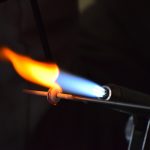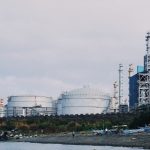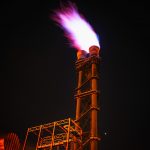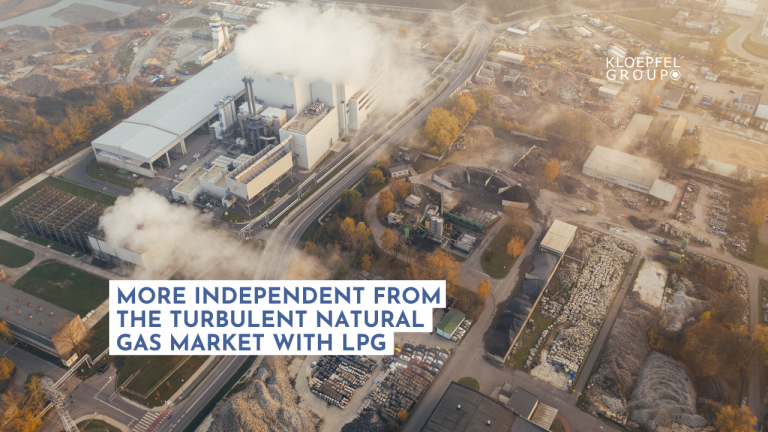Securing the energy supply through LPG and maintaining value creation in Germany
If you look hard enough, you can still find ways to mitigate the consequences of the current energy crisis. LPG (Liquified Petroleum Gas) can be a solution, as continuous market observations by the Kloepfel Group have shown. The current gas crisis can be countered with a well-thought-out replacement supply of LPG.
High prices and uncertain supplies currently characterize the gas supply. As a result, the production of entire branches of industry is threatened.
As a result, developments in the gas market are now pushing many companies to look for alternatives.
Among other things, the following questions play a major role: How do you make yourself independent of the gas market? How can you circumvent uncertainties in the current framework conditions and stabilize your supply chain?
When it comes to securing the energy supply with gas, LNG is currently frequently on the agenda of politicians and industry. However, despite some advantages, it also has its disadvantages. Let’s take a closer look at the differences.
LNG or LPG: properties and differences
LNG (Liquefied Natural Gas) is natural gas that has been liquefied by cooling it down. In German, it is known as “natural gas, cryogenically liquefied” or “liquefied natural gas.” LNG consists of over 90 percent methane. A disadvantage is that LNG requires a very low temperature and must be stored at a pressure of 8 bar in the tank. It should also be noted that LNG tanks must be used continuously and that they are not widely used in German industry.

The main disadvantage is that LNG does not provide independence from natural gas. In view of the developments on the gas market with its high prices and the uncertain supply situation, this fact is currently of utmost importance when comparing LNG and LPG.
LPG (Liquified Petroleum Gas) is a by-product of crude oil and natural gas production and the processing of crude oil in refineries. In German, this is referred to as “liquid gas” or often “propane gas”. This liquefied petroleum gas usually consists of propane or butane. The gas is liquefied at room temperature under a certain overpressure. LPG is stored and transported in pressure tanks (pressure from 2 to 8 bar).
Advantages of LPG
LPG is a transportable energy carrier characterized by high energy density. Compared to LNG, LPG has the advantage that it can be stored at ambient temperature and at lower pressure.
LPG can be used for all heating technologies for which natural gas is otherwise used. Thus, many existing consumer appliances are suitable for LPG or can be converted accordingly.
In addition, emissions of CO2 and various pollutants are generally lower with LPG heating systems compared with heating oil systems.
The most important advantage of LPG is that the price development is not oriented to that of natural gas, but to that of crude oil.

LPG is available as a byproduct of refineries as long as diesel and gasoline are produced there. In addition, 60 percent of LPG comes from crude oil demand in the North Sea (data from 2019). So here you are independent of Russia.
For the economy, it is very positive that LPG is generally suitable for substitute supply in industrial and commercial plants. In individual cases, however, a more detailed examination is necessary with regard to technical conditions. In industry, for example, an LPG tank requiring a permit is usually required.
However, demand for LPG is currently exploding due to the threat of natural gas shortages, leading to higher prices and bottlenecks. Current market monitoring shows that the supply of larger LPG tanks is currently very low.
Conclusion
LPG is clearly a good alternative among energy sources, especially to make oneself less dependent on the uncertain developments on the natural gas market in the current times.

However, the price level of LPG has also risen considerably in a multi-year comparison. In addition, as has been briefly shown, technical requirements and legal regulations must be observed if the switch to LPG is to be made. Consequently, it is recommendable to seek advice on this subject. This way, a production cutback can then be avoided and the stability of the supply chains is increased.
In this respect, the Kloepfel Group can offer support, from the initial analysis to the necessary negotiations with the suppliers of LPG and corresponding tanks. Please feel free to contact us if you are interested!
Contact:
Kloepfel Group
Christopher Willson
Tel.: 0211 941 984 33
Pempelforter Str. 50
40211 Duesseldorf
Mail: rendite@kloepfel-consulting.com
